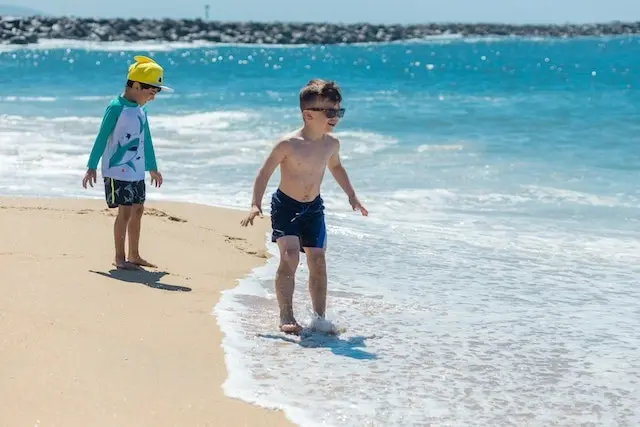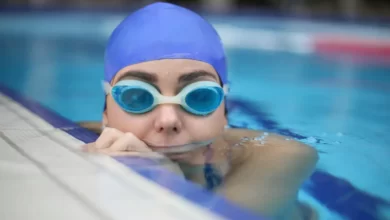Making Waves: safe Engaging Swimming Games for Elementary School Kids
Welcome to a comprehensive guide that delves deep into the world of swimming games, crafted specifically for elementary school kids. Our mission is not only to introduce a variety of aquatic activities but also to provide an in-depth understanding of their benefits, nuances, and how they contribute to the holistic development of children.
Table of Contents
What are the benefits of swim games for elementary school kids?
Swimming games extend beyond mere enjoyment, offering many advantages for elementary school kids. From enhancing physical fitness to fostering teamwork and social skills, each aspect contributes to the overall development of children. We’ll explore how these benefits extend beyond the pool and into various aspects of a child’s life.
- Physical Fitness:
- Delve into the specific physical benefits each game provides.
- Explore how these games contribute to cardiovascular health, strength, and flexibility.
- Teamwork and social skills:
- Discuss how cooperative games contribute to teamwork.
- Highlight the social interactions fostered through these aquatic activities.
Can you share some water safety tips before engaging in swim games?

Safety is paramount, and understanding the basics of water safety is crucial before embarking on swimming games. Delve into a detailed discussion of essential water safety tips, emphasizing their importance and practical application.
- Basic Safety Rules:
- Outline the fundamental safety rules applicable in pool settings.
- Stress the importance of adult supervision.
- Appropriate swim Gear:
- Provide a guide to selecting the right swim gear.
- Discuss the role of goggles, floatation devices, and other safety equipment.
What swim games are suitable for different skill levels?
Tailoring swim games to match a child’s skill level is key to ensuring an inclusive and enjoyable experience. Break down games based on skill levels, providing detailed explanations for beginners and advanced swimmers.
- Beginner-Level Games:
- Explore games that focus on basic strokes and water acclimatization.
- Discuss how these games build the foundation for more advanced skills.
- Advanced Level Games:
- Introduce games that challenge coordination and advanced swimming techniques.
- Discuss the progression from basic games to more complex activities.
How can swimming games boost physical fitness in kids?

Uncover the fitness benefits embedded in swimming games, going beyond the surface to understand how these activities contribute to a child’s overall health.
- Full-Body Workout:
- Break down how each game provides a comprehensive physical workout.
- Discuss the specific muscle groups targeted by different activities.
- Endurance, Strength, and Flexibility:
- Explore how swimming games contribute to improved endurance.
- Discuss the impact on muscular strength and flexibility.
Are there games that encourage teamwork and social skills?
Social and teamwork skills are essential aspects of a child’s development. Delve into specific games designed to foster cooperation, communication, and camaraderie among participants.
- Team-Building Activities:
- Discuss games that specifically target teamwork.
- Highlight the social interactions facilitated by each activity.
What equipment or props can enhance the fun of swimming games?

Introducing props can elevate the fun quotient of swimming games. Provide an exhaustive list of props, discussing how each item enhances specific games and contributes to a more engaging experience.
- Versatile Props:
- Explore the uses of pool noodles, water balls, and floats in various games.
- Discuss creative ways to integrate these props into different activities.
How Can Parents Ensure a Positive Experience for Kids During Swimming Games?
Parents play a pivotal role in shaping a child’s experience. Delve into detailed strategies for parents to create a positive and supportive environment during swimming games.
- Encouragement and Celebration:
- Discuss the impact of positive reinforcement.
- Provide tips on celebrating achievements, no matter how small.
- Active Participation:
- Emphasize the importance of parents actively participating in the games.
- Explore how parent involvement enhances the overall experience for the child.
Can swimming games help overcome the fear of water in elementary school kids?

Addressing fear of water is crucial to ensuring a child’s comfort and safety. Discuss in detail how specific swimming games are designed to gradually alleviate fear and build confidence.
- Gradual Exposure Techniques:
- Explore games that involve gradual exposure to water.
- Discuss how these activities help overcome fear in a supportive environment.
- Confidence-Building Games:
- Highlight games specifically focused on building water confidence.
- Discuss the transformative impact of these activities on a child’s perception of water.
What role do swimming games play in developing water safety awareness?
Water safety awareness is a critical life skill. Unpack how swimming games inherently instil water safety principles, preparing children for safe aquatic experiences beyond the realm of games.
- Incorporating Safety Lessons:
- Discuss how certain games seamlessly integrate water safety lessons.
- Explore the practical application of safety principles within the context of each game.
How can parents create a safe and enjoyable swimming game environment?
Safety remains a top priority during swimming games. Offer a detailed guide for parents on creating an environment that prioritizes safety while ensuring an enjoyable experience for their children.
- Game Selection and Adaptation:
- Discuss the importance of selecting age-appropriate games.
- Explore how to adapt games based on the swimming area and available resources.
- Communication and Boundaries:
- Emphasize the significance of clear communication.
- Discuss setting boundaries to ensure a safe and enjoyable experience.
Conclusion
“Making Waves: Engaging Swimming Games for Elementary School Kids” is not just a compilation of activities but a thorough exploration of the educational, physical, and social dimensions of swimming games. By understanding the benefits, safety considerations, and intricate details of each game, parents and educators can facilitate an enriching experience for elementary school kids in the aquatic realm. So, let’s dive into the world of swimming games, where every splash is a step toward holistic child development.

How can parents identify if their child is fearful of water during swimming games?
Identifying fear of water involves observing a child’s body language and verbal cues. Signs may include hesitation, nervousness, or reluctance to participate. If a child expresses discomfort, parents should adopt a patient and supportive approach to understand and address the underlying fears.
What are effective strategies to help children overcome their fear of water through swimming games?
Gradual exposure is key. Start with games that involve shallow water play and gradually progress to deeper areas. Incorporate elements of play, and positive reinforcement, and celebrate small achievements to build confidence. Parents should actively participate, creating a secure environment that fosters trust and comfort.




